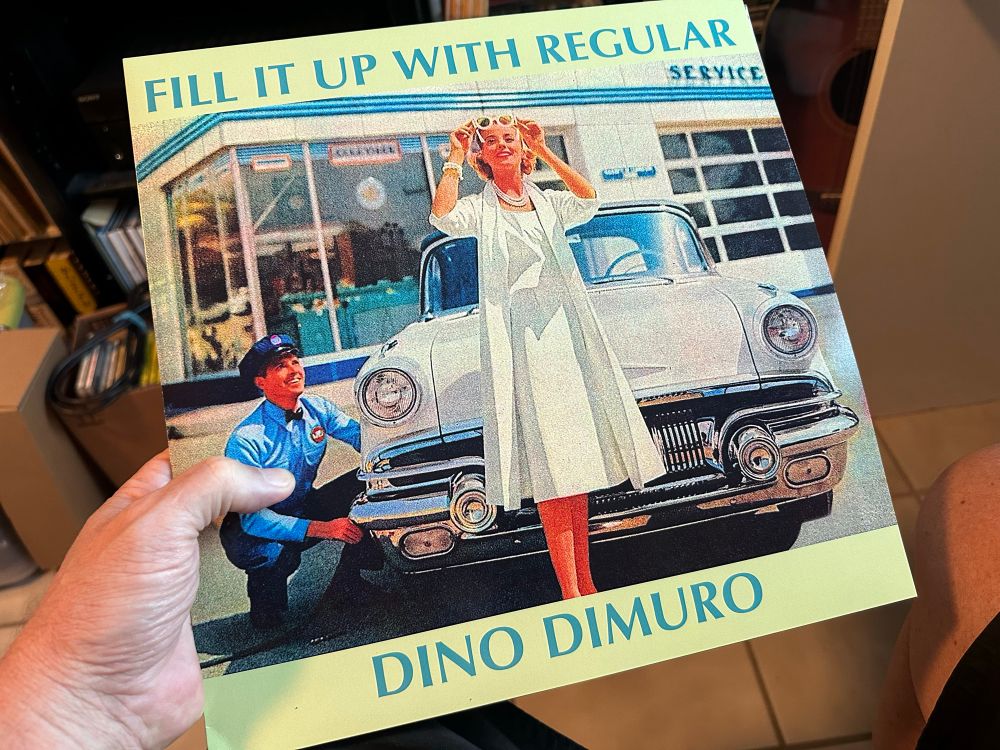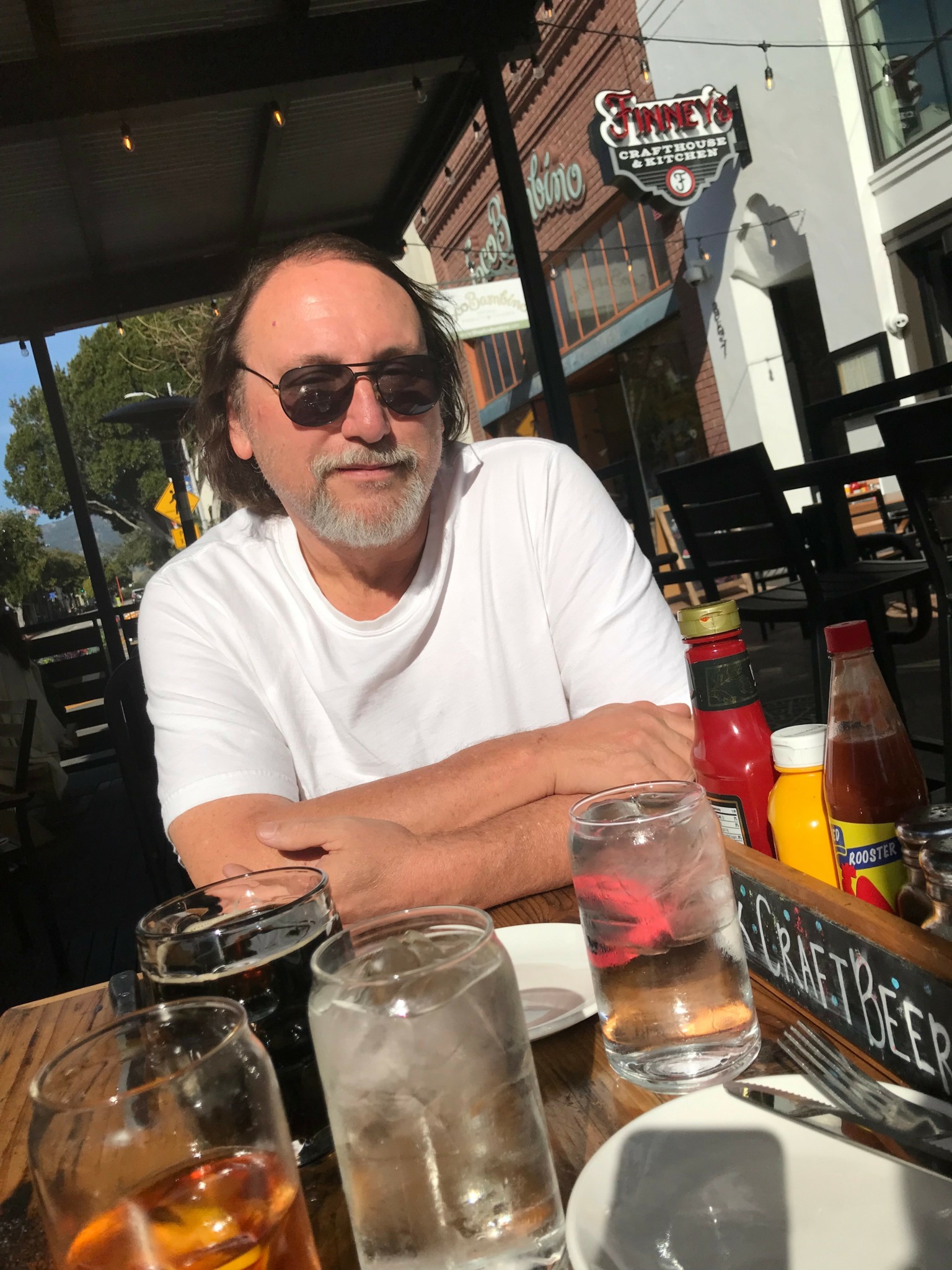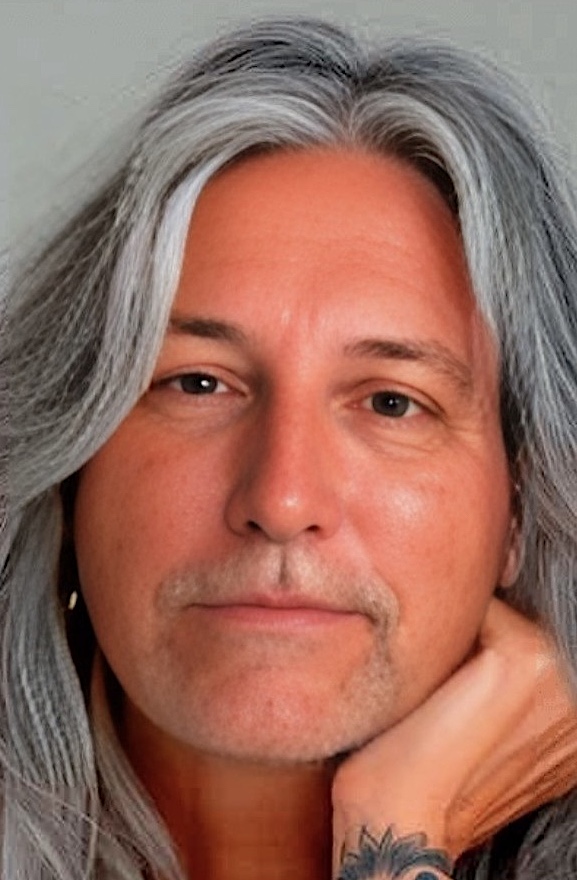Alright – so today we’ve got the honor of introducing you to Dino DiMuro. We think you’ll enjoy our conversation, we’ve shared it below.
Dino, appreciate you joining us today. Learning the craft is often a unique journey from every creative – we’d love to hear about your journey and if knowing what you know now, you would have done anything differently to speed up the learning process.
Like lots of kids of my era, my first instrument was piano which I learned at the strict, slapping hands of my Grandmother. I hated piano, but still use what I learned then to this day. Then I saw the movie “Bonnie and Clyde” and got hooked on 5-string banjo. Eventually my teenage years brought me to electric guitar and high school rock bands, one of which opened for early Van Halen. Much later I took jazz guitar and (yes) more piano lessons.
In sound work, I always had a love of tape recorders, starting off with small reel to reel machines and graduating to cassettes, 4-tracks and digital. I first recorded my own music, then made my living as a professional movie and TV sound editor with over 40 years experience.
I was able to keep my work sound and home sound projects separate, knowing that if I opened up an audio workstation at home, only my music would pop up (though in our post-Covid world, that might finally be changing!).
I can speculate that I tend to “lock in” on the few things I learn, without taking the time to learn even more about my area of expertise. For example, if I try to learn new guitar chords, I’ll start with one and immediately write songs with it, without learning any others. But I also can’t quite envision changing that. For example there’s a sound program I use and only recently did I realize there was a major function staring me in the face that I never used, but will be highly useful going forward.
In my two fields having to do with sound (music and sound effects), imagination was most essential. Because listeners and viewers expect a certain larger-than-life quality to film soundtracks and even some albums, it’s my job to go beyond what might be available in a sound library and imagine what kind of organic sounds might “represent” something else in the material world. For example, I once had to create sounds for a mountain slowly collapsing, with waves of shale, small rocks and boulders. One of the sounds I used was a wooden stage coach, because of the rocky, unstable quality it had.
Time is the most unforgiving mistress. On a film project you may have more than enough time to be creative, or you might have to do three months of work in one (as we encountered on Black Hawk Down). I coined the term “Inside out / Outside in” to describe two methods of sound editing. “Inside out” is when time is short and you literally start from inside the show and pick only what you need. “Outside in” is when you have lots of time to be creative, and you literally start “outside” the show, gathering lots of sounds that may or may not work. So again, more learning happens with more time available.

As always, we appreciate you sharing your insights and we’ve got a few more questions for you, but before we get to all of that can you take a minute to introduce yourself and give our readers some of your back background and context?
For sound training, I did as much self-training as I could on consumer taper recorders. In trying to break into movies, I made student films and ultimately became a filmmaking teacher for teens. Eventually the work I was doing at the teaching facility was noticed by industry veterans and I was given the opportunity to train at a small post facility, which led to bigger companies and jobs. I did major in filmmaking in college, but only for one semester.
The services I provide are full soundtracks for movies, TV and cable. Though I have edited dialogue, music and sound effects, most of my expertise is in effects. A recent job was three seasons of the cable series Narcos, where I edited about 80% of the sounds in each episode. In my music career I release albums and singles on Bandcamp and all streamers.
I am most proud of contributing to the legacy of some of my favorite directors including Ridley Scott, Oliver Stone, Cameron Crowe, and John Hughes, and putting my stamp on classics like Blade Runner, Home Alone and Jerry MacGuire. I am also proud to have built a large catalogue of original music that is constantly being replenished.

What do you find most rewarding about being a creative?
I would have to say that the fact that I can begin with essentially nothing – a blank reel of tape, an empty audio session, etc. – and create something new and unique that did not exist before is the most magical part of what I do. For many people in my business, sound is just a job. If they are on a cable show and a new episode comes in, they get right to work on the mundane aspects and work toward finishing. My method – especially for a show I enjoyed like Sopranos or Narcos – was to turn down the lights in my studio and play the raw episode as if I were in a theater, experiencing the show as a fan ultimately would. Only then did I feel ready to add my sounds and my craft to make the show better. Taking it a step further, the rewards really come at a movie screening or an airing of the show where I can hear my work become a part of the larger creative vision. When I worked on Sopranos, I did two episodes in Season Four but I was not a fan of the show. When I finished, I went back and watched from the beginning until I caught up, and stayed until the final episode. To this day, if I rewatch from the beginning, I completely forget I worked on the show until I start noticing familiar sounds, and suddenly remember that I actually became part of that world for a short time.

Are there any resources you wish you knew about earlier in your creative journey?
In music promotion, there are always ideas and avenues that are seemingly just around the corner that you can’t see from where you are. When I started releasing new music into a new musical landscape with things like Bandcamp and streamers, I tried applying old ideas to this new paradigm. It wasn’t working, so I did as much research as I could using search engines or “independent artist guides” that proliferate on the internet. With each new release I’d try adding another idea for promotion, including actual paid promoters. Some ideas work great, some not so much, but each one did seem to move my online musical presence forward,
Contact Info:
- Website: https://bandcamp.com/ddimuro
- Instagram: https://www.instagram.com/dinodimuro2020/
- Linkedin: https://www.linkedin.com/in/dino-dimuro-5222239/
- Twitter: https://x.com/DinoDiMuro
- Youtube: https://www.youtube.com/@dinodimuro2020
- Soundcloud: https://soundcloud.com/dino-dimuro
- Other: https://marcschuster.com/2022/07/04/like-getting-my-balls-kicked-in-an-interview-with-dino-dimuro/
Infusing Madness and Quirky Energy in Progressive Rock – Rising Artist Dino DiMuro Unveils New Album
http://ddimuro.blogspot.com/




